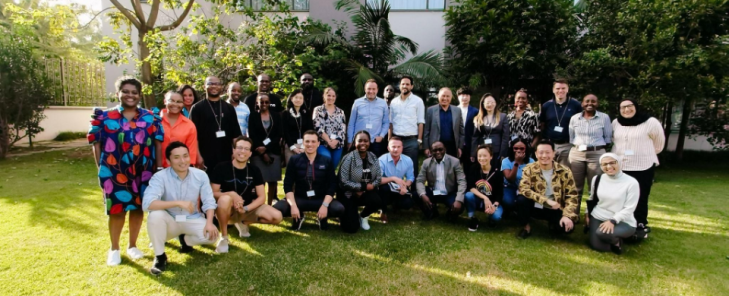Verod-Kepple Africa Ventures (VKAV) plans to back up to 21 growth-stage companies across the continent after closing its first fund at $60 million. The pan-African VC hit the milestone following fresh backing from new investors including Nigeria’s SCM Capital (formerly Sterling Capital Markets Limited), Taiyo Holdings and C2C Global Education Japan.
The latest capital injection follows the fund’s first and second close in 2022 and last year, respectively, backed by several investors, among them Japanese institutional investors including SBI Holdings, Toyota Tsusho Corporation, Sumitomo Mitsui Trust Bank, Japan International Corporation Agency and the Japan ICT Fund.
Verod-Kepple is the latest African VC to get capitalized, amid an ongoing investment downturn, allowing it to provide much-needed capital to Series A and B startups even as local capital pools for growth-stage companies remain limited.
“Over the last few years, we have seen a growth in pre-seed and seed funds, and we felt there are not enough funds at the growth stage of investing to get these companies to the next level in terms of scale, exits or even being around as sustainable profitable businesses,” VKAV partner Ory Okolloh told TechCrunch.
“Our focus is Series A and B but we have the ability to go earlier to pre-Series A if we think it is a good opportunity. We think there’s still a need for more growth-stage capital with locally based investors,” she said.
Okolloh, Ryosuke Yamawaki and Satoshi Shinada launched the VC firm in 2022, as a joint venture between Verod Capital, a private equity firm and Kepple Africa, a Tokyo-based venture capital firm.
The VC firm says the collaboration was needed for the fund to offer meaningful hands-on support, including bringing operational best practices, improving the governance structures and navigating the complex macroeconomic environment in Africa, to portfolio companies in their scale-up phase. Verod-Kepple made this case after noticing that as more startups moved from pre-seed and seed stage to Series A and B and later stages, the success of their transition and scaling required a more institutional approach.
How VKAV makes investments
The VKAV fund backs startups that are building infrastructure for the digital economy, solving inefficiencies encountered by businesses and market creators for the emerging consumer population. Okolloh says their focus on the latter is about backing companies targeting shifts in consumer trends.
The VC fund invests between $1 million and $3 million, with the ability to follow on, having already deployed $17.5 million, and investing an average of $1.5 million in 12 companies from Nigeria, Egypt, Kenya, Morocco, Ivory Coast and South Africa. The investees span the fintech, mobility, e-commerce, proptech, deep tech, insurtech, energy and healthcare sectors, and include Uber-backed Moove, climate tech scale-up KOKO Networks, Nigerian shared mobility startup Shuttlers, aerospace startup Cloudline, Morocco’s B2B e-commerce and retail startup Chari, and insurtech mTek-Services.
And while the fund is sector-agnostic, it is paying attention to vertical ERP startups and those offering embedded financial services and players in the future of work space. They are also “increasingly applying the AI lens to understand how GenAI as a fundamental infrastructure is going to change the production and distribution of tech-enabled businesses.”
Okolloh said the fund plans to continue exploring other ecosystems, including Angola, Zambia, DRC and Tunisia, through its team or partner investors, in search of new investment opportunities especially in underserved markets, and as it continues its push to be pan-African.
“Given the diversity of markets, shifting macros, markets that are underserved in terms of investors, we think taking a pan-African and a sector-agnostic approach is important,” said Okolloh, who has experience in tech and investment after previously serving as an executive at Omidyar Network and Google Africa.
“We definitely look out for a diversity of portfolio, not just in terms of gender and founders, but sector and market as well.”
The Verod-Kepple fund joins the growing number of African VC funds that are receiving backing from Japanese institutional investors looking to diversify their risks. Recently, Novastar Ventures also got capital commitments from the MOL Group and SBI Holdings.
“As an investor, the Japan connection is important and we hope to expand that later on to even a more broader Asia connection. I think, being immersed in stories and experiences and collaborating with investors and other partners from a market where you can see economic transformation in your lifetime is critical,” said Okolloh.
“I’m excited about the opportunity to learn, partner, share and even exchange with a different part of the world where their experiences are much more relatable. And most important of all, backing exceptional founders in a meaningful way that allows them to thrive.”
